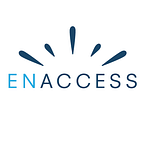Project 2: Cicada — an open source communications solution developed by Okra Solar
TL; DR: Our second project introduces Cicada — an IoT solution developed by Okra Solar.
We’re thrilled to share the results of our second project: an open source communications module developed by Okra Solar. Okra is a fast-growing smart mini-grid developer operating throughout Southeast Asia.
During this project, Okra developed and open sourced Cicada — an open source communications module that energy access organizations can use to anticipate the roll-out of 3G and 4G infrastructure.
About this project
One of the things that makes energy access marketplaces so challenging to operate in is the nature of the physical operating environment. Rural energy access organizations, in particular, find themselves operating in highly remote communities with little infrastructure. These are communities that are hard to travel to in the first place, let alone run and maintain a modern clean energy business in; and all while operating on a commercial basis.
Fortunately, an emergence of communications infrastructure in rural areas has made it easier to manage distributed energy assets. With greater connectivity, the ways in which rural solutions can be designed, deployed, operated, and maintained have been wholly disrupted. Solar home systems can be locked and unlocked remotely, smart meters on mini-grids can send continuous commercial and technical data to headquarters, and customer issues can be troubleshot through SMS messaging.
Communications hardware underpins the connectivity of energy access solutions; many of which have been outfitted for an existing 2 or 2.5G landscape throughout emerging regions. However, this landscape is evolving, with a sun-setting of 2G infrastructure anticipated (or having already taken place) in key energy access marketplaces, and the rapid emergence of 3G and 4G networks to take its place. Technology ventures in energy access, as well as in other sectors leveraging Internet of Things (IoT) approaches, will eventually migrate hardware to be compatible with these networks.
Introducing Okra Solar’s Cicada: an IoT communications module with 2G, 3G, and 4G capability
While trialing their smart mini-grid technology and business model in Cambodia and the Philippines, the Okra team ran into a bug with their remote monitoring platform. After a good deal of sleuthing, Okra realized that the off-the-shelf 2G modem they had been using was the culprit — and that the best fix would be a new, custom solution.
Given a changing communications landscape and that the team would already be expending R&D resources to develop a new hardware solution, Okra decided to anticipate global transitions, and create a firmware that could easily accommodate 2G, 3G, and 4G modems. Okra was happy to open source their work, so that other companies could avoid the cost, time, and frustration of this R&D effort. We’re excited about this solution—especially when we think about the number of energy access organizations that might be looking to create or update their own IoT-enabled hardware, and that now won’t have to spend nearly as much time or money getting connected.
Try out Cicada and let us know what you think
If you’re looking to upgrade your communications hardware and are interested in Cicada, head over to the Cicada project page. You’ll find links to Okra’s content on our GitHub, as well as an interview with the CTO and co-founder of Okra, Damian Veling, on our #openenergyaccess podcast with Tami Mahoney. To read Okra’s take on the project, check out Damian’s summary on the Okra blog.
Of course, if your team implements Cicada, we’d love to hear from you.
A huge thanks to Okra Solar for sharing their knowledge and expertise with all of us, and for being a great partner. We had a blast, learned a lot, and hope we can do this again!
